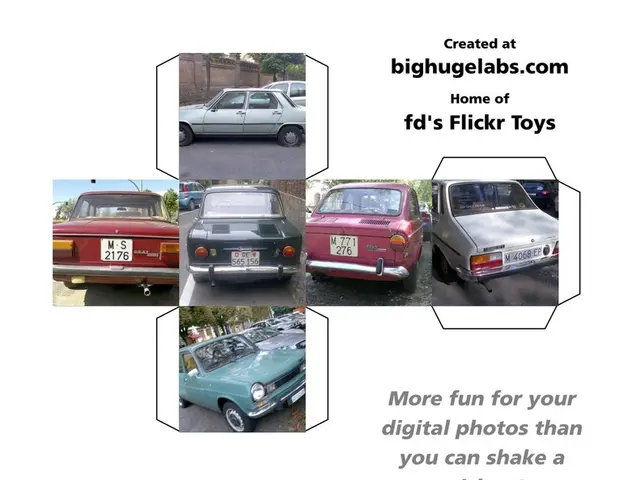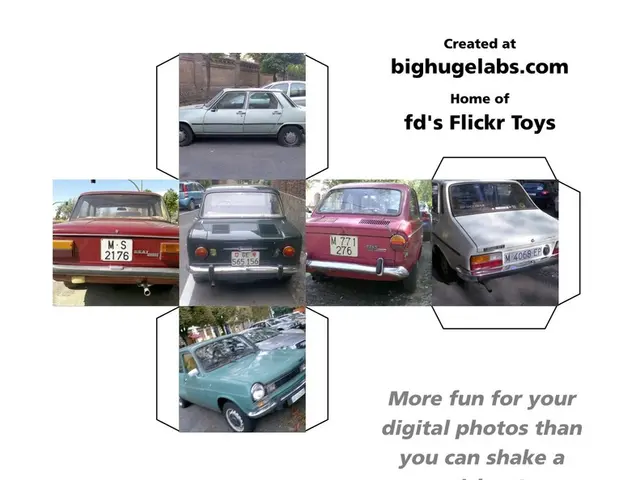Relaxed EU Climate Targets for Auto Industry: A Reprieve with Accountability
EU Climate Targets Provide Automakers with Extended Compliance Deadlines - Automakers now have extended deadlines to comply with EU environmental standards, allowing for a later implementation of decreased carbon emissions.
The automotive sector, facing CO₂ fines, receives a bit of breathing room to meet EU climate targets. The European Parliament, in a move agreed upon in Strasbourg, has proposed a relaxation of these targets. Although final approval from member states is pending, they've already voiced their support for the postponement.
In essence, the EU Commission's proposal suggests that car companies are no longer required to meet annual targets but rather have three years to comply, from 2025 to 2027. If companies like VW, Mercedes, BMW, and others exceed the emissions limits this year, they will not be immediately fined. Instead, they can avoid penalties by exceeding the EU rules in the following two years.
The German Association of the Automotive Industry (VDA) sees this decision as a crucial first step. VDA President, Hildegard Müller, states, "Political action means not only setting goals but also enabling their achievement." Müller emphasizes the need for improving framework conditions, particularly in areas like expanding charging infrastructure, electricity prices, semiconductor supply, and battery production. The international competitiveness of the location must not be overlooked, she adds.
The reason behind the threat of fines stems from fleet limits that allow a certain average value of CO₂ emissions per vehicle. This year's limit is 93.6 grams per kilometer, a figure expected to drop to 49.5 grams by 2030. Automakers risk penalties if the average CO₂ emissions of all vehicles registered in the EU exceed these limits. However, with the current sluggish demand for electric cars, car manufacturers could significantly exceed these limits.
The industry, a significant contributor to the German economy, faces pressure from Chinese and American competitors who have transitioned to e-mobility faster. Moreover, the industry is currently burdened by the trade conflict with the USA and the imposition of 25 percent tariffs on cars and automotive parts by President Donald Trump in April. The US, one of the major trading partners for the German automotive industry, accounted for 13.1 percent of exports in 2024.
The situation is also tense in the domestic market, with car registrations in Germany down by approximately one percent in 2024 compared to the previous year and around a quarter less than in 2019.
The transportation sector has struggled to make significant progress in climate protection compared to other areas, despite a decrease in emissions in Germany's transport sector. Experts argue that this reduction is primarily due to reduced truck traffic because of the economic slowdown. Despite concerns about the postponement from environmental organizations like Greenpeace, Felix Creutzig of the Potsdam Institute for Climate Impact Research maintains that the CO₂ fleet limit remains the most effective climate protection instrument in the transport sector.
In summary, the EU's decision to postpone enforcement of climate targets for the auto industry offers companies a break to adapt to challenges like global competition and the transition to electric vehicles. Yet, companies must still work towards lowering emissions and complying with the overall EU climate goals to remain competitive.
- Vocational training programs in EC countries could prioritize emerging sectors like electric vehicle production, enabling easier transition for the automotive industry.
- The sluggish response to climate-change in the transportation sector could be accelerated through increased funding in environmental-science and renewable-energy resources.
- European Union member states, while supporting the postponement of climate targets for the auto industry, must ensure that financial incentives facilitate the growth of public-transit systems and energy-efficient transportation options.
- In light of the increasing competition from China and America in the electric vehicle market, European automotive companies could invest in strategic partnerships, research collaborations, and joint vocational training initiatives with universities and research institutions.
- The European Union could establish partnerships with industries and educational institutions to develop innovative environmental-science programs geared towards preparing future generations of engineers and architects who can tackle climate-change and emissions challenges.
- EU countries should view the relaxation of targets as an opportunity to create more stringent emission limits in subsequent years, motivating the automotive industry to embrace cleaner technologies and operate more sustainably.
- The success of the auto industry in meeting climate targets and reducing emissions will depend on effectively addressing challenges in various domains, such as battery production, charging infrastructure, and the overall transition towards e-mobility.








